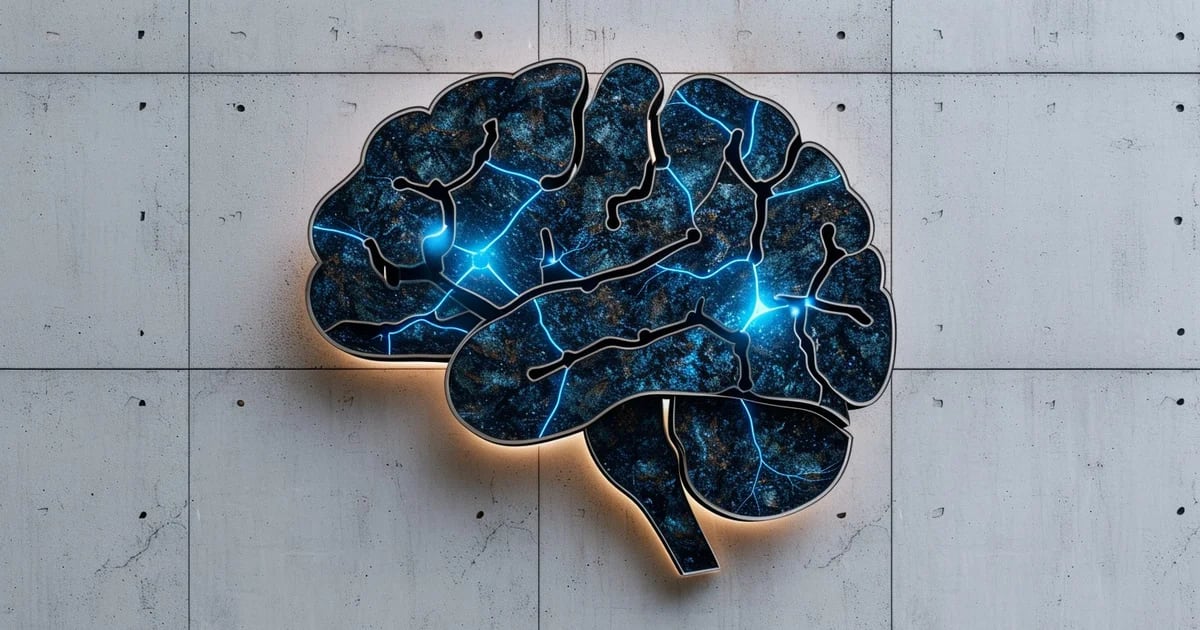Taking steps to ensure the brain is healthy and alert is not something only older people should prioritize, he said. Dawn C. Carrprofessor of sociology and co-director of the Research on aging in contexts, health and inequalities in the Florida State University. “It’s something we have to think about at every stage of life,” Carr said. There are activities that prevent disease and benefit health.
Habits that help keep the brain healthy not only reduce the risk of developing Alzheimer’s and other forms of dementia, added the Dr. Dawn Ericssonmedical director of Age Rejuvenationbut also preserve independence, promise a better quality of life and promote well-being and longevity.
Some experts shared eight practical steps we can take to protect our brain and keep it alert for as long as possible.
Games like those of memory, riddles and word searches They’re like bicep curls for the brain. “They help stimulate neural connections and keep the brain alert,” Ericsson explained. He further said that the key point is to learn new things and constantly challenge yourself to achieve new ways, something that can also be achieved with activities such as reading or playing an instrument.
“If you already do the daily crossword puzzles, Connections or Wordle, keep up the good work. A 2022 study found that crossword puzzles are particularly effective in improving memory and preventing brain shrinkage in people with mild cognitive impairment,” he highlighted.
Regardless of your favorite mental game, “a good way to know if you’re stretching your cognitive ability is to reflect if you’re feeling a little uncomfortable,” Carr said. “Doing things you’re not good at, like learning to dance, writing, etc. poetry or learning a new language are cognitively complex activities that help protect your brain,” he said.
Like the rest of the body, the brain needs nutrients To thrive. Studies show that people who follow a Mediterranean dietwhich consists mainly of fish, fruits, vegetables, olive oil and whole grains, are less likely to develop the disease Alzheimer’s. Carr said that each person is different and that is why there is no perfect food to solve brain problems.
Still, prioritize fruits and vegetables (which have been shown to improve overall health outcomes) as well as foods rich in antioxidants, fatty acids, Omega 3 and vitamins, is a good idea, according to Ericsson. “Limit processed foods, sugary snacks and saturated fats, as they can negatively impact brain health,” he said.
Both experts also agree that it is crucial to limit alcohol consumption. Research shows that alcohol can reduce brain volume and that even low levels of consumption are linked to premature brain aging. Therefore, it is preferable to drink less daily.
Research shows that the physical activity (even light exercise, such as cleaning the house and running errands) reduces the risk of dementia. “Physical exercise has been linked to better brain health,” Ericsson said.
“Aim for at least 150 minutes of moderate-intensity aerobic exercise per week, along with strength-training exercises. “Exercise increases blood flow to the brain, promotes the growth of new neurons, and improves cognitive function.” If you can’t dedicate the full 150 minutes a week, even shorter amounts count. “Even walking 20 to 30 minutes each day is enough, but if you only have 15 minutes, do it,” Carr said.
According to National Institutes of Health, the brain receives 20% of the body’s blood supply, which provides oxygen and nutrients. Uncontrolled high blood pressure can damage the brain by reducing or blocking blood flow.
If your blood pressure is high, talk to your doctor about ways to lower your blood pressure, such as eating a well-balanced, low-salt diet, exercising regularly, limiting alcohol, and managing stress, as recommended by the American Heart Association.
Water It represents 75% of brain mass, so dehydration can affect the brain’s ability to function. A 2023 study found that dehydration reduces cognitive function in overweight adults over a two-year period. A new Yahoo News/YouGov poll found that 25% of American adults say they drink one or two glasses of water a day, and 8% rarely or never drink it.
According to National Academy of Medicine (NAM), the daily recommendation is nine glasses (or 2.2 liters total) of water per day for women and 13 glasses (or 3 liters total) for men.
Rest It is crucial for brain health. “Sleep feeds the brain,” she commented. Dr. Sulagna Misraprimary care physician and founder of Misra Wellness in Encino, California. Sleep is also the time during which memories are processed and stored. “When you don’t sleep, your brain health can be significantly affected,” she said.
Ericsson recommended trying to get seven to nine hours of quality sleep each night. “Establish a regular sleep schedule, create a relaxing bedtime routine, and make sure your sleep environment is comfortable and conducive to restful sleep,” he suggested.
“Learn to establish meaningful connectionsAnd building meaningful relationships is essential for our mental health and, in turn, our cognitive health,” Carr said. A 2023 study with more than 12,000 participants found that loneliness and isolation can increase the risk of dementia by more than 40%.
“We must prioritize cultivating friendships, high-quality family relationships, and regular engagement with the people around us.” “It has important benefits for our brain health and our well-being at all ages,” Carr added.
Stress It is not good for the brain or any other part of the body. Moving, sleeping well, and practicing relaxation exercises such as deep breathing and meditation can help reduce stress levels. But stress still affects memory and attention.
Misra recommended giving mental health the extra care it needs, possibly with the help of a therapist, psychiatrist or medication.
Taking these steps can significantly help maintain brain health over time and improve our overall quality of life.

